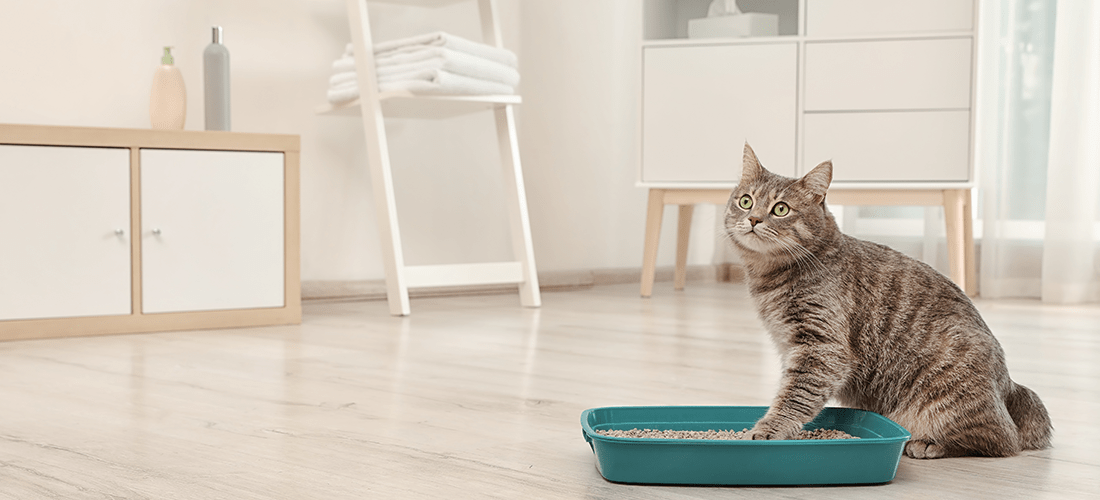What to do if your cat/dog can’t pee
Overview
- Being unable to pass urine is a life threatening condition that requires immediate veterinary attention.
- Left untreated, a blockage in the urinary tract can lead to severe pain, kidney problems, a dangerously slow heartbeat, a burst bladder and even death.
- Call your vet for advice ASAP if your dog or cat is having trouble peeing.

- Check your cat’s litter tray to see if they have passed anything at all.
- Check for urine around your home, especially the bath, sink, cold/hard floors, behind furniture and on beds (many cats pee in strange places if they are in pain).
- Make a note of any other symptoms such as repeatedly straining, crying out in pain, vomiting, a swollen/painful tummy, repeatedly licking their genitals, or even collapse.
- Call your vet immediately if your cat is showing any of these signs, and is unable to pass urine – they may be suffering from a blocked bladder which is a life-threatening emergency. Don’t wait to see if your cat improves and never attempt to treat them at home.
- If your cat doesn’t have these symptoms, and is able to pass small amounts of urine, they may be suffering from a urine infection, feline idiopathic cystitis, or another urine/bladder problem. It’s still important to contact your vet for advice because left untreated, the issue is likely to get worse and potentially lead to more serious problems. If possible, collect some urine from your cat to take for testing.

- Watch your dog while they attempt to pee to see if they pass any urine.
- Check for urine in your dog’s bed or elsewhere around your home.
- Make a note of any other symptoms such as repeatedly straining, crying out in pain, vomiting, a swollen/painful tummy, repeatedly licking their genitals, or even collapse.
- Call your vet immediately if your dog is showing any of these signs, and is unable to pass urine – they may be suffering from a blocked bladder which is a life-threatening emergency. Don’t wait to see if they improve and never attempt to treat them at home.
- If your dog isn’t showing these symptoms, and is able to pass small amounts of urine, they may be suffering from a urine infection, an issue with their prostate gland or another urine/bladder problem. It’s still important to contact your vet for advice because left untreated, the issue is likely to become worse and potentially lead to more serious problems. If possible, collect some urine from your dog to take to your vet for testing.
Published: October 2021
Did you find this page useful?
Tell us more
Please note, our vets and nurses are unable to respond to questions via this form. If you are concerned about your pet’s health, please contact your vet directly.
Thank you for your feedback
Want to hear more about PDSA and get pet care tips from our vet experts?
Sign up to our e-newsletter
Written by vets and vet nurses. This advice is for UK pets only. Illustrations by Samantha Elmhurst.

